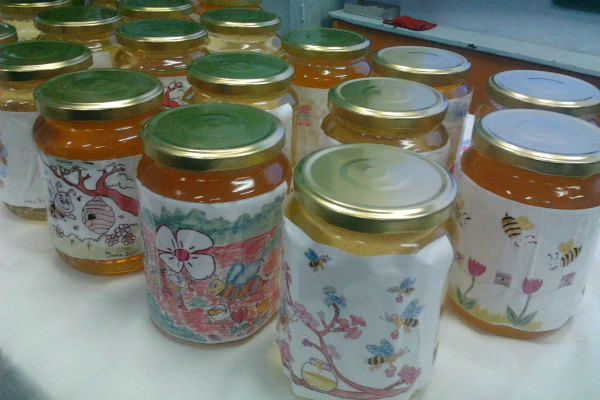The boarding school located in Carpineni, Hancesti, created its own bee garden after it got financing for the project from the Embassy of Germany in Moldova. The children of the school, who remained without parental care, started to learn how to keep bees, while the institution’s administration wants to develop a business from this practice so that the children sell honey and other apicultural products to the residents of Carpineni. The journalists visited the apiary within a press tour staged by the Embassy of Germany, IPN reports.
The public association “Right to Life” proposed that a bee garden should be set up at the boarding school in Carpineni, where the children could be trained in beekeeping. The association filed an application for financing to the Embassy of Germany, which supports the implementation of tens of micro-projects in Moldova. The Embassy provided €16,000 for this project. The money was used to buy beehives and the equipment needed for keeping bees and for automatically extracting honey from honeycombs.
Beekeeper Mihai Bozianu from Carpineni donated 50 bee families to the boarding school. He also teaches the children how to take care of the bees. So far, 16 children from the upper grades have attended the beekeeping classes. The beekeeper also helped the children to wrap up the beehives for winter and promised he will help those who will want to set up their apiary or to work at his apiary when they leave the boarding school.
The boarding school’s principal Tudor Tenu considers that this experience will bring benefits to the children. First of all they will be able to do a job when they leave the school and to ear some money. This project will be developed and they will also build a honey bottling workshop so as to later sell the honey at a kiosk near the school’s gates.
The Embassy of Germany annually allocates up to €80,000 for financing micro-projects in Moldova. In 2014, the Embassy financed nine such micro-projects. The total financial assistance of Germany in Moldova amounts to about €15 million a year for different areas.

